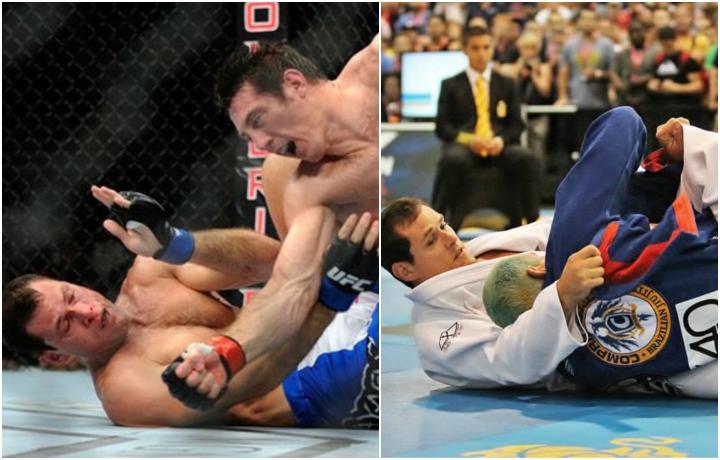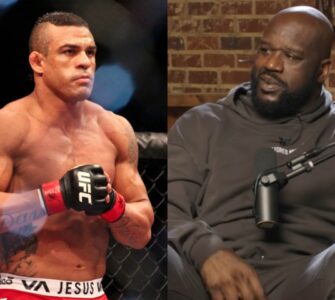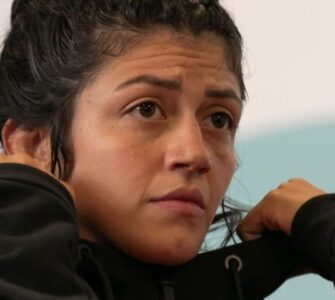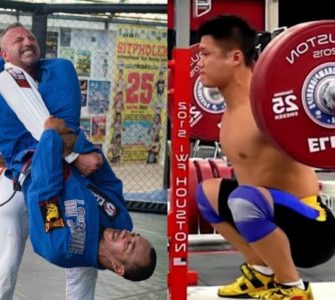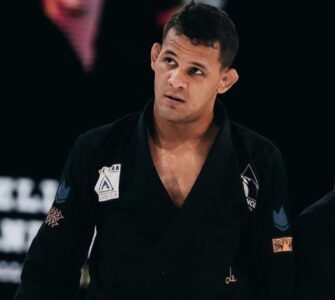A couple of years ago Conor McGregor was doing an interview about the possibility of his Mayweather fight and he made a metaphor that compared MMA to spinning multiple plates at the same time. This paints a picture of a world where a legend like Enson Inoue feels comfortable wearing a purple belt in spite of all his experience in combat sports.
Speaking of Inoue, one of the many messages of support he received was from George Sotiropoulos. Among other things George said:
Grappling in MMA is different to grappling in jiujitsu. There are markedly big differences. There’s a lot of technique that would not be used. But there are many jiujitsu practitioners who would not be able to use their jiujitsu in MMA or a real fight.
If you are not comfortable using your jiujitsu in a real fight or MMA, there is something wrong with your jiujitsu…
I trained at Marcelo Garcia’s Academy in 2013/14, and I was not on par with his top black belts. I have a solid ground game, but jiujitsu has evolved tremendously and my finger was not on the beat.
Times have changed. New skills and techniques must be acquired. Although I would not use many of these modern day strategies and techniques, you must know what’s going on in the art to say you know jiujitsu. That’s the evolution of the art.
George Sotiropoulos is a seasoned veteran in MMA who won 14 of his 21 fights and a long time BJJ black belt who has been training since he was 19. By 2001 he was a purple belt who won numerous Australian BJJ and grappling tournaments. Sotiropoulos got his black belt back in August 2004, shortly after he set his sights on America and ultimately landed in UFC.
How is Jiu-Jitsu for MMA different from just training Jiu-Jitsu?
The obvious route would be to observe how experienced jiu-jiteros changed once they started adapting to the requirements of Mixed Martial Arts combat. A particularly interesting example is the case of Andre Galvao. Galvao had his MMA debut sometime in 2008. But his 2009 ADCC showing suffered – he seemed out of touch and barely won against young Chris Weidman. He did manage to win silver in the upto 88kg division but still.. Lucky for the grappling scene, he opted to hang up the gloves and go back to his grappling roots. Subsequently, he won the upto 88kg division at the ADCC 2011.
Earlier this year many were worried about Mackenzie Dern’s performance at Worlds. While her game has changed a bit she managed to defeat Michelle Nicolini once again and win in her division. Here’s what she had to say on transitioning into MMA:
You are a player who plays a lot of guard. MMA is more dangerous and different. How are you adapting to standing and taking punches?
At first I was frequently leaving the face exposed. Wow, so many punches in the face in the beginning (laughs). Now I’m adjusting myself better, I can attack more and know where to put my legs so my head doesn’t take a beating. But I’m feeling much better overall as well.
Obviously exposing your head is an obvious downfall of many (closed guard) techniques, but this doesn’t mean you can’t use them just that you need to adapt to the conditions of the environment and realize you have this fight ending tool at your disposal. But much of MMA really is about utilizing your skills and balancing the exposure to risk vs reward balance.
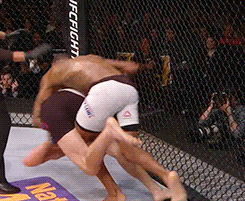
Many on the submission only circuit don’t subscribe to the position over submission philosophy and enjoy hunting for heel hooks, but this is an adapted response to a different environment. You wouldn’t train the same for EBI and IBJJF event for an example. And naturally MMA training would take you in an entirely new direction.
So what happens if we go the route of Enson Inoue? We get a highly skilled practitioner in regards to basics but not much finesse when it comes to adapting to all these new conditions and philosophies that don’t necessarily match with the old ones. One could argue this doesn’t make him any less of a black belt, just someone whose (bjj) train of thought no longer matches the majority in any room present.
Jake Shields seems like one of the rare guys who can do it all – perform well everywhere from MMA to the Submission only circuit. But his true background is in wrestling which he can lean on in both MMA and Grappling whereas once you start to focus on striking, you can’t really take it back with you into your closest IBJJF Open.
Once a high level jiu jitsu practitioner throws his hat in the ring and decides to try their hand in MMA it’s likely most of their training will be dedicated to catching up in other areas as opposed to perfecting their jiu-jitsu. The plates must spin, sort of speak and something is bound to fall through the cracks. Especially given how much bjj is evolving and shaped by the cultural zeitgeist and the ever expanding market.

